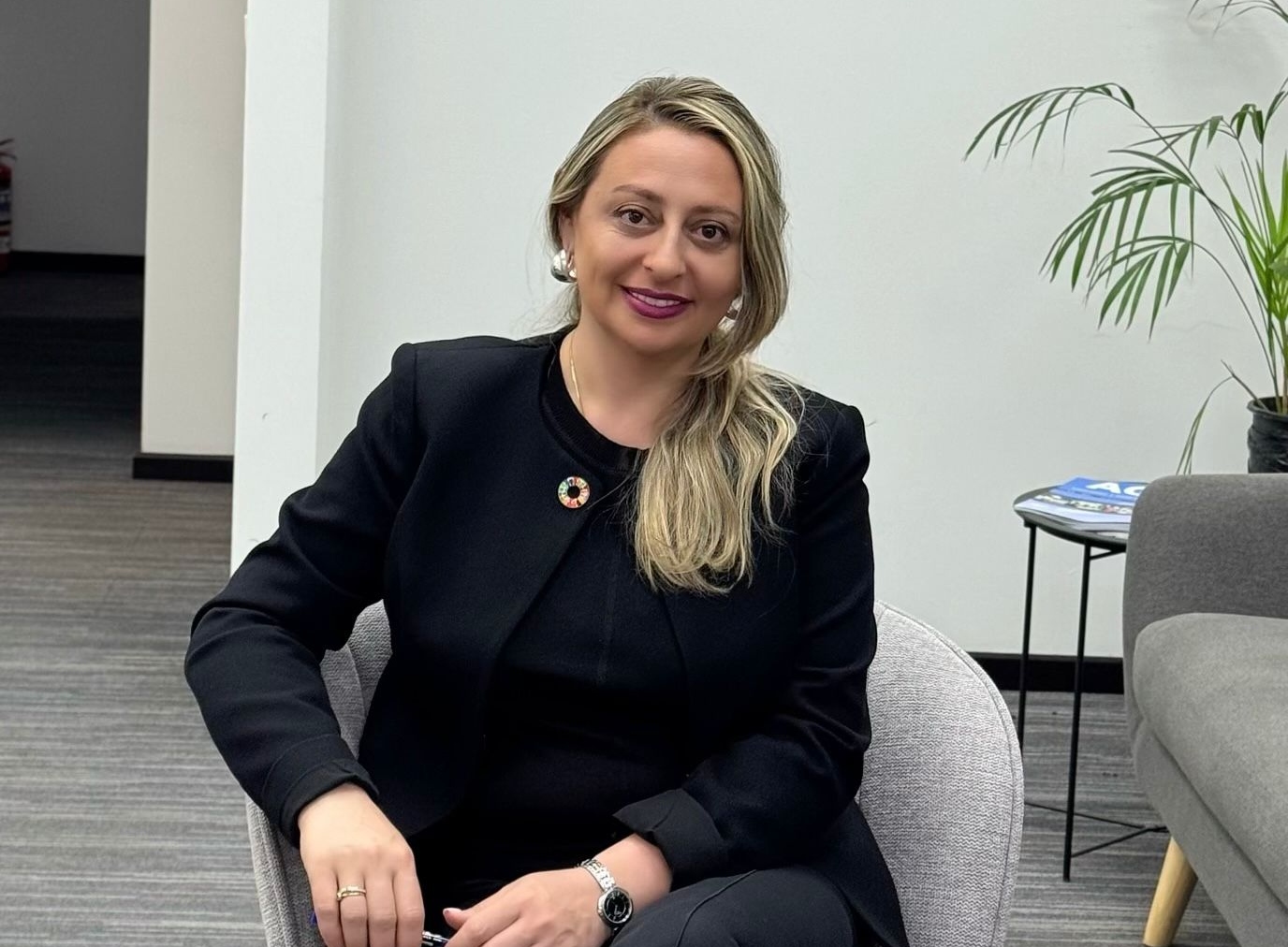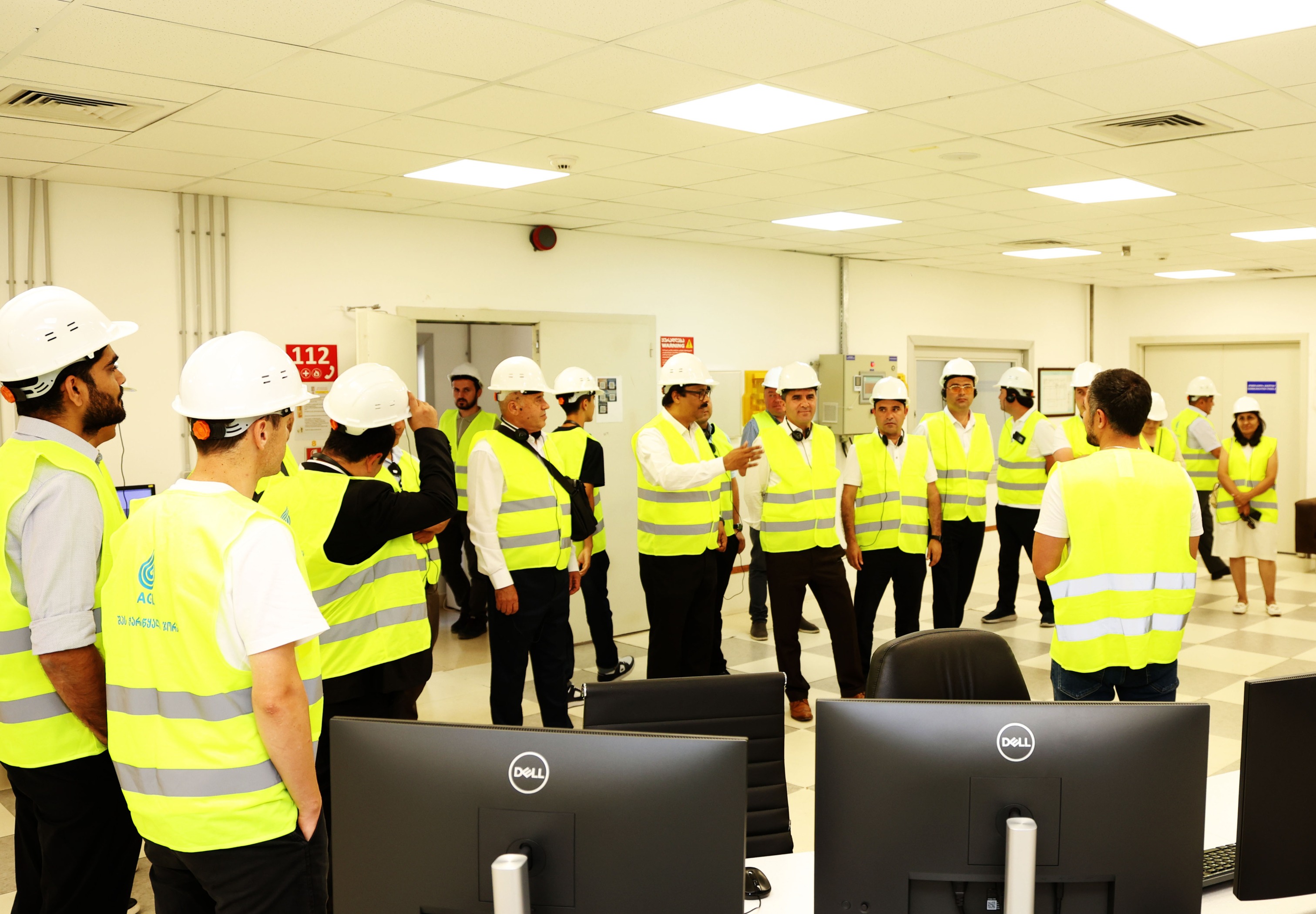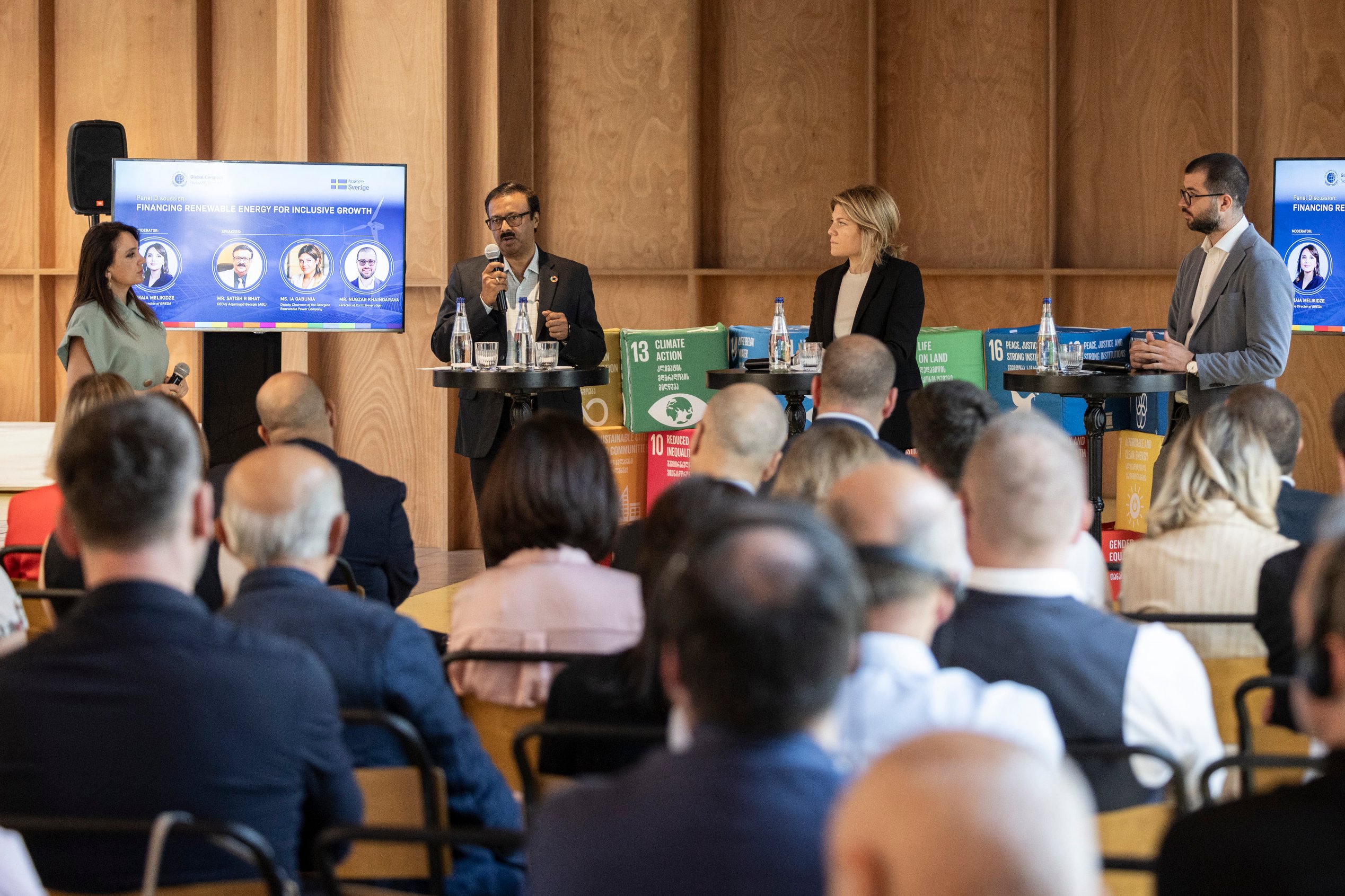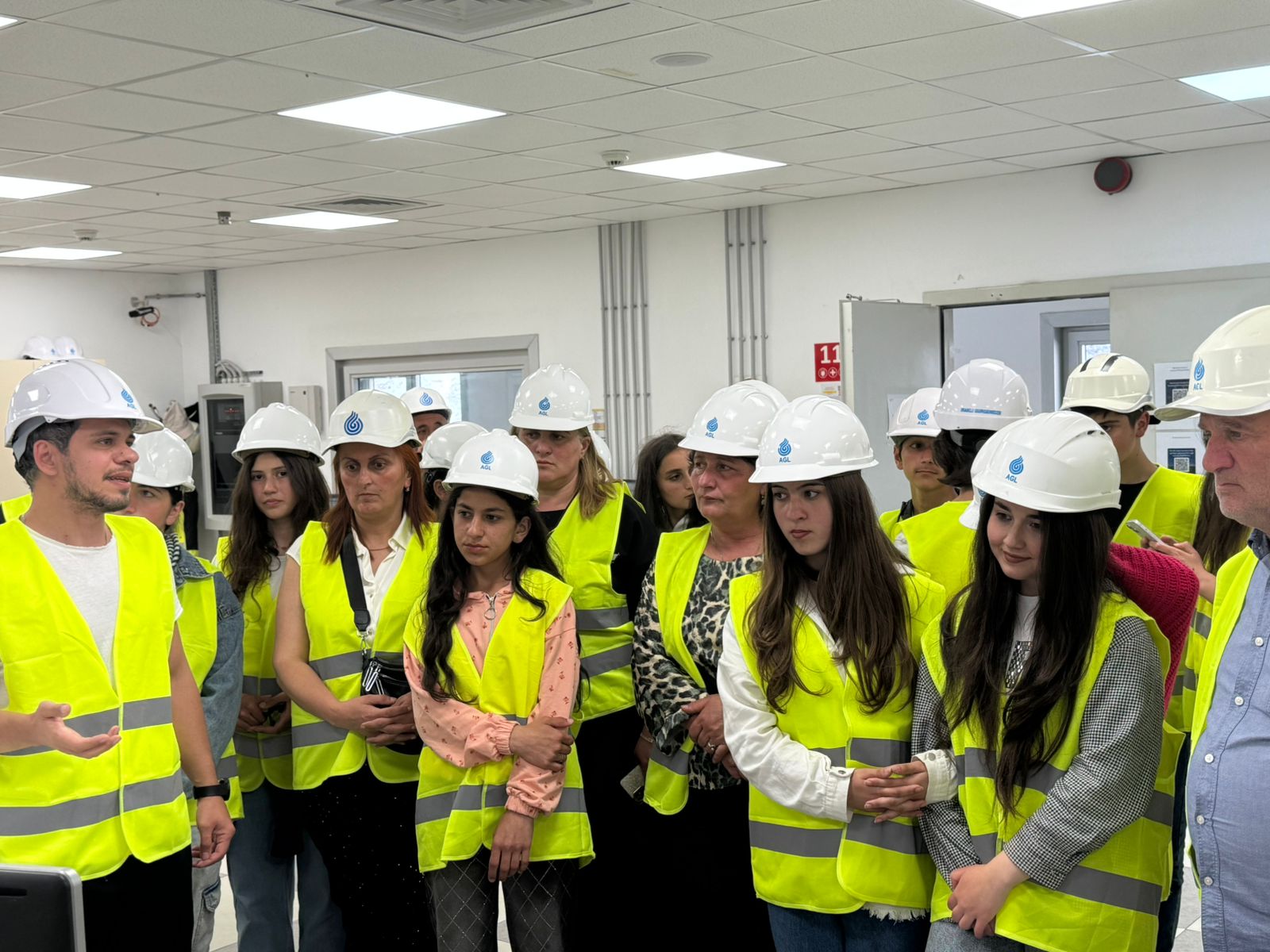Stories

SUSTAINABILITY SPOTLIGHT: Environmental Standard of Adjaristsqali Georg
“Adjaristsqali Georgia” is one of the leading energy companies in Georgia, operating the Shuakhevi HPP cascade with a total capacity of 187 MW. The cascade accounts for approximately 4–5% of the country’s total electricity generation. In addition to ensuring stable and secure power production, the company prioritizes safety, environmental protection, and social responsibility issues.
By implementing educational, infrastructure, and community-oriented social projects tailored to the needs of local communities, the company has set a high benchmark for social sustainability in Georgia’s energy sector. From the onset of construction, Adjaristsqali Georgia launched initiatives focused on improving living conditions and fostering long-term development in the region. During the construction phase, the company employed over 1,000 Georgian citizens, the majority of whom were local residents. Adjaristsqali Georgia continues to carry out social projects during the power generation phase.
How the company protects and develops environmental standards – Nino Gagua, Head of Environmental Compliance at Adjaristsqali Georgia, spoke to SUSTAINABILITY SPOTLIGHT about these and other interesting issues.
Tell us about your work. How is environmental compliance ensured in day-to-day operations, especially in a highly regulated sector such as hydropower?
The Shuakhevi HPP is one of Georgia’s key energy projects, playing a vital role in strengthening the country’s energy security and advancing renewable energy development. To sustain these benefits, strict compliance with environmental requirements throughout both the construction and operational phases is essential. Minimizing potential environmental impacts is a critical focus, which is why environmental compliance, safety, and corporate responsibility remain a top priority for the company.
Since the Shuakhevi HPP is financed by international financial institutions such as the International Finance Corporation (IFC), the European Bank for Reconstruction and Development (EBRD), and the Asian Development Bank (ADB), the company is required to align its operations not only with national legislation but also with the environmental and social standards of its partner financial institutions. Compliance with these standards entails the identification, assessment, and management of environmental and social risks to promote sustainable development and ensure meaningful stakeholder engagement.
It is worth noting that in 2013, when construction of the Shuakhevi HPP began, there was a significant gap between Georgia’s environmental legislation and the standards of international financial institutions. Accordingly, consistent compliance with legal and international obligations posed considerable challenges. Today, as Georgia progresses in harmonizing its legislation with EU directives, the country’s environmental legal framework has become more closely aligned with international standards. For instance, key legal acts such as the Environmental Assessment Code and the Waste Management Code have been adopted, fully reflecting the principles upheld by international financial institutions. These improvements have brought greater clarity to regulatory requirements, making compliance more achievable for businesses. Nevertheless, challenges remain, and overcoming them will require sustained effort and collaboration between the public and private sectors.
Transformational governance means that companies should go beyond internal operations and take responsibility for their broader impact on society and the environment. How is this principle reflected in your work?
I believe that transformational management offers companies an opportunity to go beyond simply complying with mandatory requirements, recognise their responsibility to society and the environment, and become initiators/implementers of positive change.
We recognize that our operations impact the Adjara region, its ecosystems, local communities, and the energy sector as a whole. That’s why we are committed to continuously identifying both direct and indirect impacts arising from our activities and addressing them in accordance with best international practices. In this process, we rely on the expertise and experience of both local and international specialists.
I really think that “Adjaristsqali Georgia” has demonstrated a strong commitment to corporate sustainability since its inception. The company has implemented hundreds of social and environmental projects that support the economic and sustainable development of the mountainous region of Adjara. Notable initiatives include financing the Goderdzi Alpine Garden, which contributes to biodiversity conservation and tourism development; partnering with local environmental organizations to support their institutional growth through professional skills development programs; and retraining hundreds of local residents, many of whom have since found employment. In collaboration with local municipalities, we have also funded key infrastructure projects, such as the construction of kindergartens, the installation of drinking water systems, and the improvement and rehabilitation of local roads.
Therefore, we can confidently say that transformational governance is not just a concept for our company but the foundation of our daily operations.
What mechanisms do you use to assess the company’s environmental impact, manage risks, and ensure compliance? How do you promote public engagement and transparency?
The company has implemented an integrated environmental management system (EMS) that helps us identify and effectively manage risks, ensure public engagement, and transparency.
The Environmental Impact Assessment Report was a key document that enabled us to identify potential impacts and define mitigation measures in 2012. In subsequent years, we have used environmental management plans to identify risks in various areas, review types of impact, and implement appropriate monitoring. For instance, as part of the Biodiversity Management Plan, we monitor biodiversity, specifically fish, water-dependent protected species, and endemic flora species, as well as water quality and other environmental elements. Based on the analysis of environmental monitoring results, we determine whether our activities have impacted the environment and, if necessary, plan appropriate mitigation or compensation measures. For example, one key measure implemented by the company is the installation of a fish pass on the Chirukhi Dam, which is currently functioning effectively. Another important compensation effort is the stocking of brook trout in the Adjaristsqali River basin. Since 2020, more than 40,000 trout have been released into local streams. Reforestation is also a priority—over 10,000 Georgian Red Listed trees have been planted in the municipalities of Shuakhevi and Khulo as part of our compensation initiatives.
In terms of community engagement and transparency, the company has actively involved local communities and stakeholders since the pre-construction phase of the project. Although Georgian legislation at the time did not mandate stakeholder consultations during initial stage, the company voluntarily initiated a series of meetings with local residents and key stakeholders. During the construction phase, information centers were established in the municipalities of Shuakhevi and Khulo, providing a platform for community members to access project-related information and receive answers to their questions.
We continue to actively engage with stakeholders during the operational phase as well. The company has established a grievance mechanism that enables anyone to submit a complaint or inquiry and receive a response within a defined timeframe. In addition, members of our social team regularly meet with local authorities and community representatives to understand their needs and keep them informed about the activities planned by the company.
Transparency is also ensured by the fact that all documents related to the project, including public information on Ecological flow are posted on the company’s website and are available to everyone via LIVE cameras.
How does the company collaborate with stakeholders, local communities, and international partners to uphold and promote environmental standards?
Ensuring compliance with environmental standards is a complex and challenging issue. Collaboration with stakeholders, sharing experiences and guidance from international partners are essential in this process.
Meetings with local communities and the company’s grievance system often identify environmental issues that require further investigation and response, which consequently helps to strengthen the company’s environmental compliance.
With regard to our international partners it should be noted that our financial partners conduct annual audit of the company’s performance on social and environmental issues. In addition, we submit an annual compliance report to these partners, which helps further strengthen and improve our environmental compliance practices.
Cooperation with the Ministry of Environmental Protection and Agriculture of Georgia, as well as with non-governmental organizations, is also essential. We value their expertise and actively consider their recommendations as part of our continuous improvement process.
What advice would you give to other companies that are just starting to tighten their environmental standards and want to integrate transformational management principles?
First and foremost, it’s important to emphasize that implementing the principles of transformational governance marks a new stage in the company’s development. This transition requires a clear strategic decision, the commitment and readiness of the management team, and the mobilization of appropriate human and financial resources.
Clear and measurable environmental goals must be established- goals that go beyond mere legal compliance and incorporate environmental innovation. While this process undoubtedly requires additional resources, it is a worthwhile investment. Transformational governance represents a strategic commitment to long-term success, enhancing the company’s reputation, operational efficiency, and overall sustainability.



